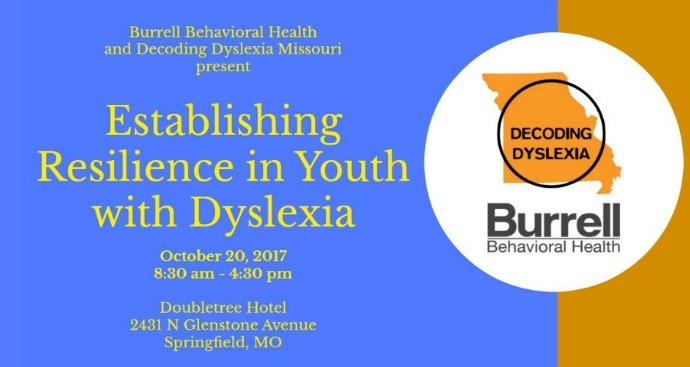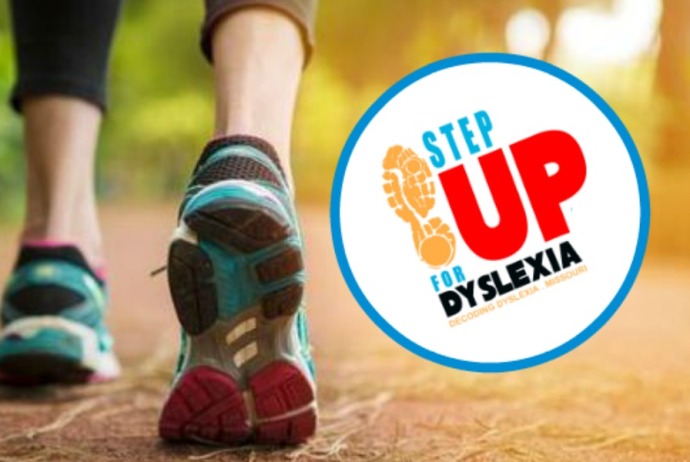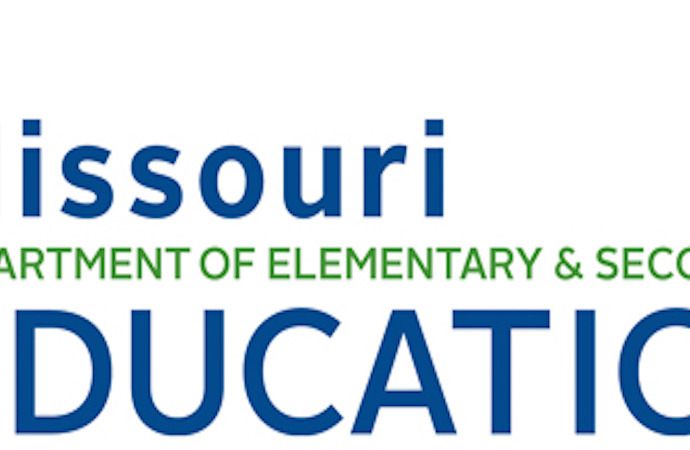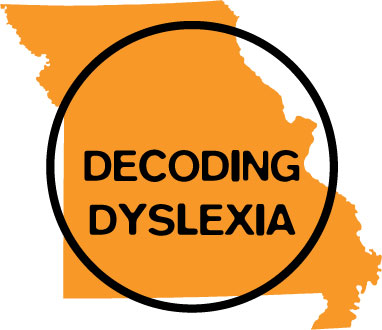Have you had problems getting your child’s School District to use the term “dyslexia”? You aren’t alone. These letters may help! Be sure to share them with your child’s teachers, administrators, and his or her IEP team. #SAYDYSLEXIA
DDMO DESE Dyslexia IEP opinion letter
US Dept of Ed guidance-on-dyslexia-10-2015
Interview with Michel Yudin, US Dept of Education
On October 23, 2015, the US Department of Education released their letter of guidance on dyslexia, dyscalculia, and dysgraphia. The following is a summary of the letter and how it may apply to Missouri families and students with Individualized Education Plans (IEPs).
Background: Dyslexia stakeholders, including Decoding Dyslexia Missouri, reported to the United States Department of Education (USDOE) that State and Local Education Agencies (SEAs/LEAs) routinely refuse to use the word dyslexia and often refuse to screen/ identify, provide interventions for and/or educate teachers about dyslexia, dysgraphia (writing) and dyscalculia (math) disabilities. The DOE guidance document, linked here, responds to stakeholder complaints, including all 50 Decoding Dyslexia State Groups, and provides guidance to the State and Local Education Agency responsible for implementing both Response to Intervention (RtI –whole class/Tier I and small group/Tier II) and special education programs under the Individuals with Disabilities Education Act of 2004 (IDEA).
Summary:
1. It’s Okay to Say Dyslexia! The purpose of the letter from the DOE is to clarify that there is nothing in the Individuals with Disabilities Education Act (IDEA) that would prohibit the use of the terms dyslexia, dyscalculia, and dysgraphia in IDEA evaluation, eligibility determinations, or IEP documents.” (Guidance Letter page 1, paragraph 1)
2. IDEA Includes Dyslexia as a Specific Learning Disability and Evaluations Can Consider Disabilities like Dyslexia, Dysgraphia and Dyscalculia. The guidance letter references the definition of specific learning disability in the IDEA, which includes the term dyslexia and says that school districts should conduct evaluations for students with difficulty reading (dyslexia), writing (dysgraphia), spelling (dyslexia, dysgraphia) and/or math concepts (dyscalculia) in accordance with 34 CFR Para. 300.304-300.311, evaluation procedures, IDEA. (Guidance letter page 1, paragraph 2)
3. Students Who Struggle with Reading, Writing and Math in the General Education Setting Can be Identified Using Response To Intervention (RTI) and Multi Tiered System of Support (MTSS). The guidance letter reiterates that students who are at risk for reading failure and who struggle to read, write, spell and Decoding Dyslexia – MO Educate. Advocate. Legislate. Decoding Dyslexia – MO Educate. Advocate. Legislate. understand math concepts can receive interventions through Response to Intervention (RTI) and a Multi-Tiered System of Supports (MTSS). The guidance further clarifies that RTI and MTSS can be used to address the specific learning needs of students with learning differences in the areas, of reading, math, writing. (Guidance Letter page 1, paragraph 3 & 4)
4. If a Student Doesn’t Respond to RTI/MTSS, Refer them for an Evaluation for Special Education. Students who receive “scientific-research based interventions” using RTI or MTSS and who don’t respond to the interventions “must be” referred for an evaluation to determine if they are eligible for special education and related services. RTI and MTSS cannot be used to delay or deny a full evaluation for a student suspected of having a disability. (Guidance letter page 2, paragraph 1)
5. Information about a Child’s Difficulties with Reading, Math and/or Writing, including Information Presented by the Parents, is Important to Determine the Child’s Disability and Educational Needs.
a. The guidance says that when determining whether a child has a disability under the IDEA, including a specific learning disability, and is eligible to receive special education and related services because of that disability, the school district must conduct a comprehensive evaluation under Sec. 300.304, which requires the use of a variety of assessment tools and strategies to gather relevant functional, developmental, and academic information about the child.
b. It further states that information provided by parents with regard to reading, writing, and math must be considered as a part of the requirement “to gather relevant functional, developmental and academic information about the child” including information on the child’s learning difficulties related to reading, mathematics or writing. (Guidance Letter p.2, paragraph 2)
c. NOTE: If you are a parent and you notice your student struggles with reading, writing and/or math at home, this is information that should be included in the eligibility determination along with what’s going on in the classroom.
6. A Child Who Achieves Below Peers and/or Is Not On Grade Level Should be Evaluated. The guidance says that if a student is not achieving adequately for the child’s age or to meet grade level standards, this information should be considered for eligibility. (Guidance Letter p.2, paragraph 1)
7. If a Child’s Eligibility includes Dyslexia, Dysgraphia and/or Dyscalculia, Nothing Prohibits including these Specific Conditions in the Eligibility Determination. (Guidance Letter p. 2, Paragraph 2)
8. The Terms Dyslexia, Dyscalculia, Dysgraphia Can Be Used in the IEP. The Office of Special Education and Rehabilitative Services (OSERS) reiterates that there is nothing in the IDEA or the implementing regulations that would prohibit IEP Teams from referencing or using the terms “dyslexia”, “dyscalculia”, or “dysgraphia” in a child’s IEP. (Guidance Letter p.3, paragraph 1)
9. If Dyslexia, Dyscalculia and/or Dysgraphia is the Disability, the Team Should Learn About It so It Can be Addressed in the IEP. “OSERS believes there could be situations where an IEP team could determine that personnel responsible for IEP implementation would need to know about the condition underlying the child’s disability (e.g. that a child has a weakness in decoding skills as a result of the child’s dyslexia.)”
10.Ensure that Regular Education Teachers Are Informed about the Child’s IEP, its Implementation and Specific Accommodations, Modifications and Supports that Must be Provided. (Guidance Letter page 3, paragraph 1)
11.Information on Commonly Used Accommodations in the Classroom for Students with Dyslexia, Dysgraphia and Dyscalculia Should Be Provided to State and Local Education Agencies. OSERS lists a number of resources to find such accommodations and recommends that states access the DOE Technical Assistance Centers that develop materials and resources to support States, school districts, schools and teachers. (Guidance Letter page 3, paragraph 2).
12.OSERS encourages the Missouri Department of Elementary and Secondary Education (DESE) to review their policies, procedures and practices to ensure that it does not prohibit the use of the terms dyslexia, dyscalculia and dysgraphia in evaluations, eligibility and IEP documents. (Guidance Letter page 4, paragraph 1)
13.OSERS encourages Missouri Department of Elementary and Secondary Education (DESE) to remind its local school districts of the importance of addressing the unique educational needs of children with specific learning disabilities resulting from dyslexia, dyscalculia, and dysgraphia during IEP Team meetings and other meetings with parents under IDEA. (Guidance Letter page 4, paragraph 1) Decoding Dyslexia – MO Educate. Advocate. Legislate.









 Learning disabilities, including reading disabilities, are commonly diagnosed in children. Their etiologies are multifactorial, reflecting genetic influences and dysfunction of brain systems. Learning disabilities are complex problems that require complex solutions. Early recognition and referral to qualified educational professionals for evidence-based evaluations and treatments seem necessary to achieve the best possible outcome. Most experts believe that dyslexia is a language-based disorder. Vision problems can interfere with the process of learning; however, vision problems are not the cause of primary dyslexia or learning disabilities. Scientific evidence does not support the efficacy of eye exercises, behavioral vision therapy, or special tinted filters or lenses for improving the long-term educational performance in these complex pediatric neurocognitive conditions. Diagnostic and treatment approaches that lack scientific evidence of efficacy, including eye exercises, behavioral vision therapy, or special tinted filters or lenses, are not endorsed and should not be recommended.
Learning disabilities, including reading disabilities, are commonly diagnosed in children. Their etiologies are multifactorial, reflecting genetic influences and dysfunction of brain systems. Learning disabilities are complex problems that require complex solutions. Early recognition and referral to qualified educational professionals for evidence-based evaluations and treatments seem necessary to achieve the best possible outcome. Most experts believe that dyslexia is a language-based disorder. Vision problems can interfere with the process of learning; however, vision problems are not the cause of primary dyslexia or learning disabilities. Scientific evidence does not support the efficacy of eye exercises, behavioral vision therapy, or special tinted filters or lenses for improving the long-term educational performance in these complex pediatric neurocognitive conditions. Diagnostic and treatment approaches that lack scientific evidence of efficacy, including eye exercises, behavioral vision therapy, or special tinted filters or lenses, are not endorsed and should not be recommended.

